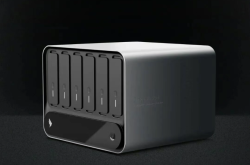The local lifestyle sector has fallen into chaos again, and the industry is seeking a new equilibrium!
![]() 11/13 2024
11/13 2024
![]() 572
572
As Meituan bets on the front-end warehouse model with its Flash Mart and focuses on instant retail, JD.com is also feeling restless. At the end of October, news broke online about the integration of JD.com's 7FRESH and its front-end warehouses. Immediately after, on the first day of November, JD.com's 7FRESH Supermarket released an article titled "Blowout! Not Afraid to Compare" on its official account, seemingly initiating an instant retail price war.
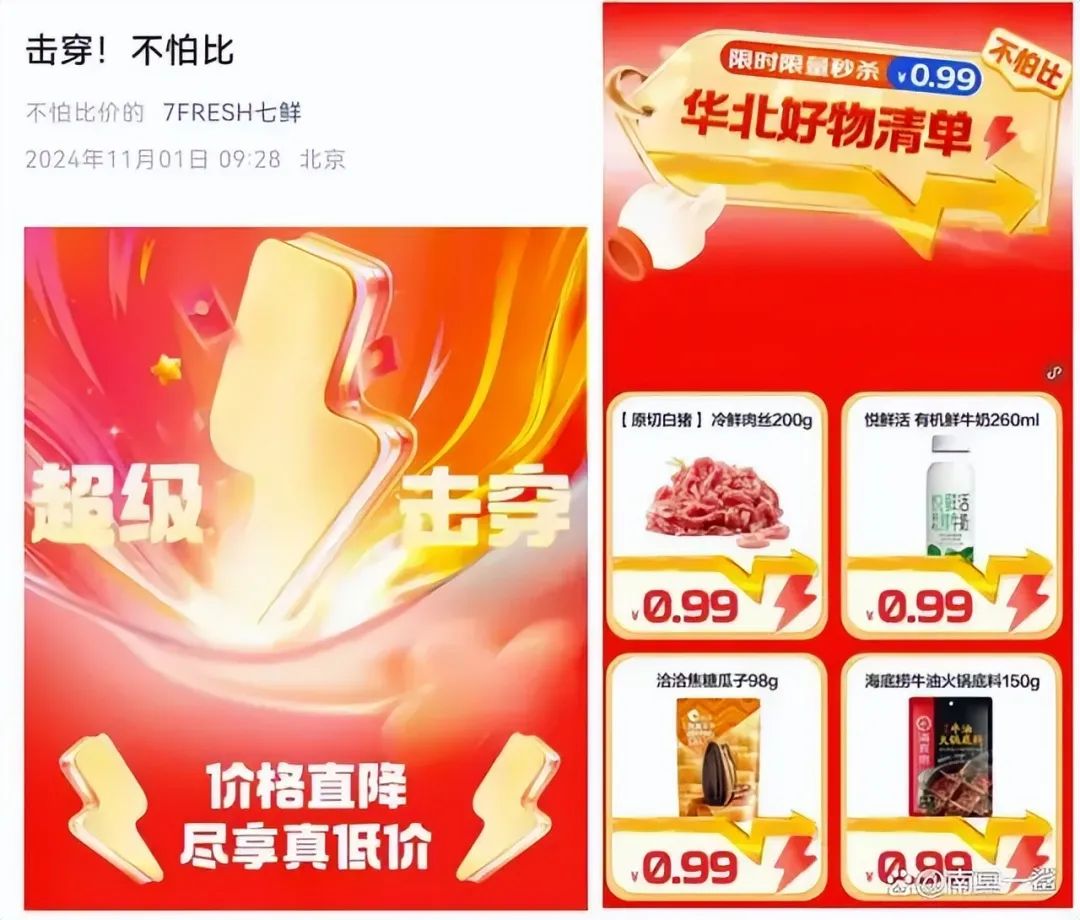
Image source: Screenshot from JD.com's 7FRESH WeChat official account
Observations indicate that the flames of the instant retail war have now reached Meituan's stronghold of local lifestyle services. Meituan and JD.com's current bets on the front-end warehouse model represent a resurgence compared to the struggles and even losses experienced by earlier fresh food e-commerce platforms like Missfresh that employed this model.
Moreover, the entire local lifestyle services sector has become embroiled in chaos due to the increased focus on instant retail by major players. Even emerging short video platforms like Douyin and content communities like Xiaohongshu have poured in through the deployment of services such as on-site and home delivery.
So, in the second half of the mobile internet era, what new stories will unfold in the "reignited" local lifestyle services sector?
Local lifestyle services are being redefined
When discussing local lifestyle services, Meituan is an unavoidable player. As a survivor of the "Thousand Group War" a decade ago, Meituan is undoubtedly the king of the local lifestyle services sector.
From a traditional group-buying platform to now aggregating takeout, on-site dining and travel, shared mobility, and services like Xiaoxiang Supermarket evolved from Meituan's grocery shopping, Meituan has formed a perfect closed loop from online and offline traffic entry points to terminal service fulfillment and delivery, all based on local lifestyle services.
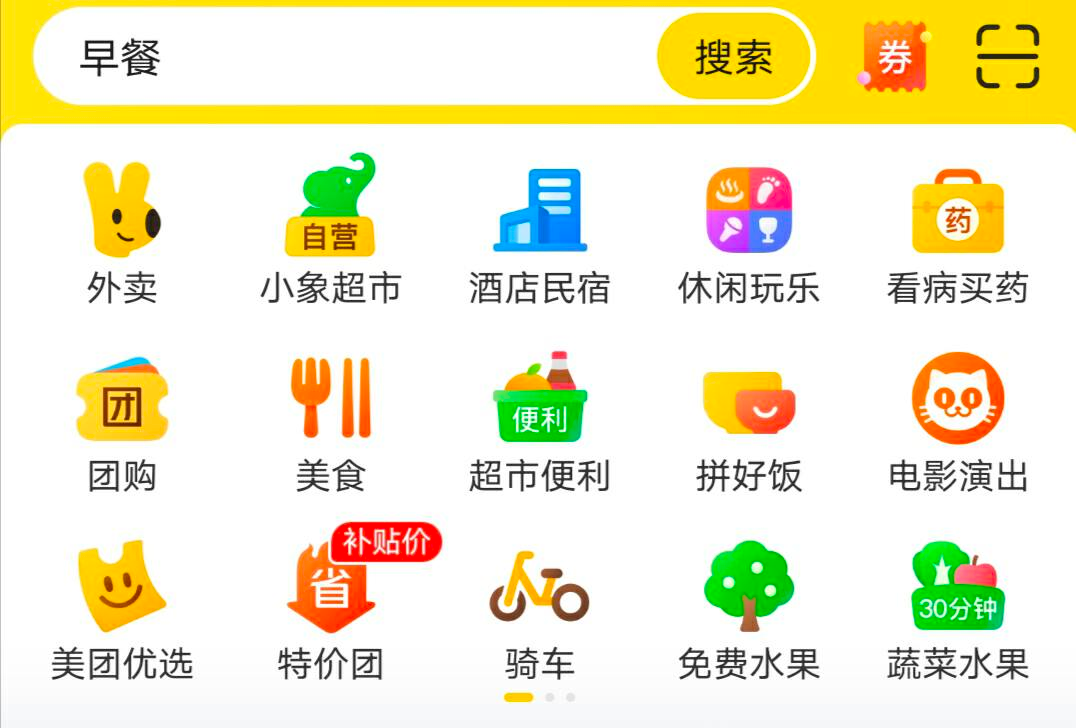
Image source: Meituan APP homepage
However, due to the rich and diverse scenarios of local lifestyle services, they also lead to "complex operations" and "lengthy processes," making them appear overly "cumbersome" at the operational level. This is why, despite numerous players entering the local lifestyle services sector through the group-buying model in the early years, only Meituan emerged victorious, relying on its powerful ground promotion team.
The difficulty of operating the local lifestyle services model is evident. Firstly, from an industry perspective, traditional local lifestyle services primarily include relatively rigid and high-frequency services such as dining, grocery home delivery, laundry, home maintenance, beauty and skincare, leisure and entertainment (including massage, bath services, etc.). However, due to the diversity of service scenarios and the non-standardized nature of service content, it is relatively more difficult to acquire precise traffic.
Secondly, from the perspective of service delivery, local lifestyle services must not only provide high-quality services but also integrate resources such as same-city instant delivery and on-site services to complete efficient fulfillment through a combination of online and offline methods.
It is clear that such a complex service chain, which also requires balancing the operations of users on both ends, is not easily accomplished by just any company. Taking Meituan as an example, although Meituan has become the industry leader in food delivery through this approach, it still needs to expand its business empire given the strong competitors like Ele.me in the food delivery industry.
Therefore, in early May 2019, Meituan held a press conference in Beijing to officially launch the new brand "Meituan Delivery" and announced the opening of its delivery platform, promoting the slogan "Everything Can Be Delivered." This also marked that Meituan's local lifestyle services were no longer limited to food delivery but had stepped into the instant delivery sector, expanding its business empire to the instant retail sector where everything can be delivered.
In fact, Meituan's move also kicked off fierce competition in the instant retail sector. Subsequently, major internet giants also increased their focus on local lifestyle services, continuously improving related logistics and delivery services, enhancing fulfillment efficiency and service experience, and participating in industry competition in various forms.
At the same time, traditional local lifestyle services have also been redefined due to the emergence of the instant retail model. "Older generation" players represented by Meituan and Ele.me, as well as "newer generation" players represented by JD.com, Douyin, and Xiaohongshu, have also begun a new round of competition in this redefined sector.
The return of the 'front-end warehouse' model intensifies competition in the local lifestyle sector
Instant retail based on local lifestyle and instant delivery services is a complement to the traditional e-commerce model relying on logistics and express delivery. This model also has robust vitality due to its fast delivery speed and short fulfillment cycle.
In fact, players participating in the local lifestyle services sector are mainly divided into three categories, each with their own advantages and significant presences in the industry.
The first category includes Daily-Fresh, Dingdong Maicai, Pupu Supermarket, Hema Supermarket, and others that participate through the fresh food e-commerce O2O model. These players target consumers in first- and second-tier cities due to their fast-paced lifestyles and high demands for quality of life, as well as the potential demand for instant delivery of fresh produce and groceries among domestic residents. Therefore, they entered the market early through the front-end warehouse model and the on-site to home model, forming their own advantages and barriers and gradually opening up the market.
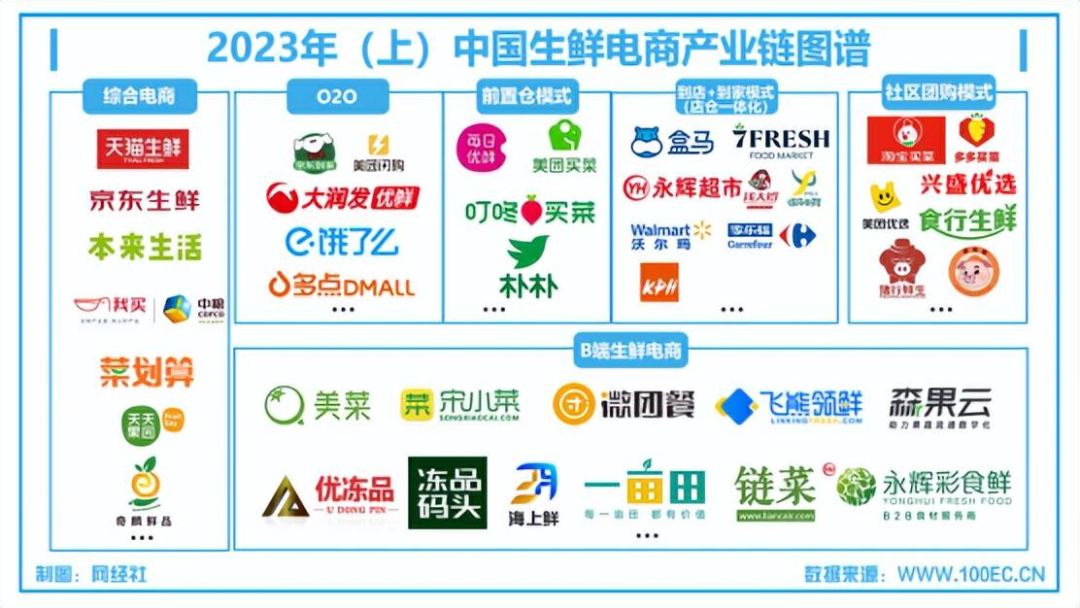
Image source: ECNS
At the same time, fresh food e-commerce platforms have also "helped" educate consumers in the entire instant retail sector, fostering the habit of buying groceries at home and shopping nearby.
The second category emerged around 2020 when the impact of the pandemic hindered going out, and various community group-buying platforms based on grocery shopping businesses sprang up like mushrooms after rain. They quickly expanded their territory through low-price flash sales and other customer acquisition models, capturing the local lifestyle services market in another way.
At that time, representative enterprises participating in market competition included Pinduoduo's community group-buying platform, Taocaicai, JD.com's 7FRESH, Meituan Youxuan, and Hema Supermarket. However, this model was also criticized by the central media for its low-price competition, being accused of monopoly.
The third category is the rising food delivery sector in recent years, as well as Meituan Flash, Xiaoxiang Supermarket, and online and offline local lifestyle services represented by Meituan On-site and JD.com Daojia, which operate under the banner of "delivering everything." Compared to the community e-commerce model, this type of model features more immediate delivery and a better experience. During the pandemic over the past few years, it has gradually gained traction and become the mainstream in the industry.
Although players participate in market competition in different ways, they face similar industry challenges. On the one hand, major grocery shopping platforms focusing on fresh produce have long struggled to achieve positive profitability due to high fulfillment costs, product storage, and significant transportation losses.
A typical example is the now-defunct Daily-Fresh, which collapsed due to its early years of aggressive spending and territorial expansion, leading to a broken capital chain. Dingdong Maicai, which has a very similar model, was also forced to retrench and close some city stations due to long-term losses before finally achieving profitability in 2023.
According to Dingdong Maicai's second-quarter financial report released in early August, the company achieved GMV of 6.218 billion yuan, a year-on-year increase of 16.8%; total revenue was 5.599 billion yuan, a year-on-year increase of 15.7%. Under Non-GAAP accounting standards, Dingdong Maicai's net profit was 103 million yuan, a nearly 13-fold year-on-year increase. Notably, this was Dingdong Maicai's seventh consecutive quarter of achieving net profit under Non-GAAP.
Although Dingdong Maicai is gradually getting on track in terms of profitability, it came at a huge cost of sacrificing scale. Taking the full-year data for 2023 as an example, during the reporting period, the company's GMV decreased by 16.3% year-on-year to 21.969 billion yuan. This revenue scale was even 735 million yuan less than the same period in 2021.
Therefore, with Daily-Fresh and Dingdong Maicai as precedents in the industry, it is highly questionable whether the front-end warehouse model can achieve a viable business model and profitability through scaling. With Meituan and JD.com re-entering the market through the front-end warehouse model, extending their categories from fresh produce to daily necessities, they may face similar challenges and fates as fresh food e-commerce platforms in this newly defined local lifestyle services sector.
Rising stars strengthen their presence; how can industry 'veterans' hold their ground?
Through Meituan's transition from food delivery to delivering everything through its Flash Mart and JD.com's 7FRESH integrating its front-end warehouses to participate in the online supermarket competition with a "low-price" label, it is evident that major players in the local lifestyle services sector are not only expanding their product categories but also making trade-offs and balancing between scale and efficiency.
A notable change is that after JD.com's 7FRESH launched the "Blowout! Not Afraid to Compare" event on November 1, the first scorecard showed that online order volume and number of transacting users both achieved triple-digit year-on-year growth in the first three days after the event's launch, with popular items across multiple categories such as fruits, vegetables, aquatic products, meat, poultry, and eggs selling out.
At the same time, after completing the integration with its front-end warehouse business, JD.com's 7FRESH also significantly improved its fulfillment speed, with an average delivery time of 27 minutes within a three-kilometer radius. Meituan officially launched its Meituan Flash business as early as 2018, covering a wide range of categories such as convenience stores, fresh produce, flowers, and green plants, with 30-minute delivery and 24/7 uninterrupted service.
Although traditional internet giants represented by JD.com and Meituan are coming on strong in local lifestyle services based on the instant retail sector, there are also internet "rising stars" like Douyin and Xiaohongshu participating in industry competition, and their strength should not be underestimated.
Taking Douyin as an example, as early as the end of 2023, Douyin quietly revamped its group-buying (local) channel, adding three new modules: "Special Price Group Buying," "Popular Charts," and "Free Trial," which was seen as a strong signal that Douyin was fully betting on local lifestyle services.
According to the "2023 Annual Data Report" released by Douyin Lifestyle Services in early 2024, the total transaction volume of Douyin's lifestyle services platform increased by 256% in 2023, covering over 370 cities. Compared to the previous year, short video transaction volume on the platform increased by 83%, and live streaming transaction volume increased by 5.7 times.
It's worth noting that Douyin only started venturing into local lifestyle services in 2018. This growth rate, compared to Meituan, which has been deeply rooted in local lifestyle since over a decade ago, demonstrates that Douyin is a rising star with the potential to challenge the authority of the "veterans."
As its platform traffic and local lifestyle services continue to rise, Douyin's local lifestyle business is also entering an era of refined operation. After its delivery and fulfillment systems are gradually improved, it will also pose a significant challenge to players like Meituan and JD.com.
It is understood that as early as July 2021, Douyin's "Heartbeat Delivery" began a low-key closed beta. Although its development process has had its ups and downs, Douyin has made frequent adjustments to its delivery service since 2024.
For example, between March and August 2024, Douyin's Lifestyle Services department first underwent an organizational restructuring, moving Douyin Delivery from local lifestyle services to e-commerce services. Subsequently, the Douyin group-buying delivery business was transferred to the Doudian Daojia delivery platform, and a delivery zone was launched on Douyin's hour-long delivery service. In August, Douyin's delivery business was reintegrated into local lifestyle services.
And just recently, Douyin Lifestyle Services officially announced the full upgrade of its existing group-buying delivery business to the "Random Group" business. According to media reports, to ensure the smooth progress of the "Random Group" business, the original "Group Buying Delivery" business will gradually migrate to the new business starting from November 1, 2024.
Regarding the frequent adjustments to Douyin Delivery, an employee of Douyin Lifestyle Services bluntly stated, "Behind the multiple adjustments is the hope of trying to streamline business processes in more ways.""
Although it's been a bumpy road, it is undeniable that relying on its inherent platform traffic and short video and live streaming content advantages, Douyin's layout in local lifestyle services is a formidable force that cannot be ignored. The upgrade of Douyin's group-buying delivery business to "Random Group" will also mean that Douyin will further invest heavily in the lifestyle services sector, participating in competition with a higher level of style.
It is worth noting that Douyin's layout in local lifestyle services is also a full-category penetration, including on-site dining and travel, catering delivery, and Douyin Supermarket, which was launched in September 2022. According to public data, sales in Douyin's lifestyle services sector exceeded 100 billion yuan in the first quarter of 2024, a year-on-year growth rate of over 100%. This demonstrates Douyin's huge potential in local lifestyle services.
Coincidentally, Xiaohongshu, which has risen rapidly in recent years, has also set its sights on the lucrative local lifestyle services sector. According to media reports, in early September, Xiaohongshu announced its expansion of local lifestyle services to 49 cities, focusing on the catering industry. Based on feedback in the comments section of the official account "Tuboshu," starting in mid-September, merchants and service providers began receiving notices for entry or exit from manual operations.
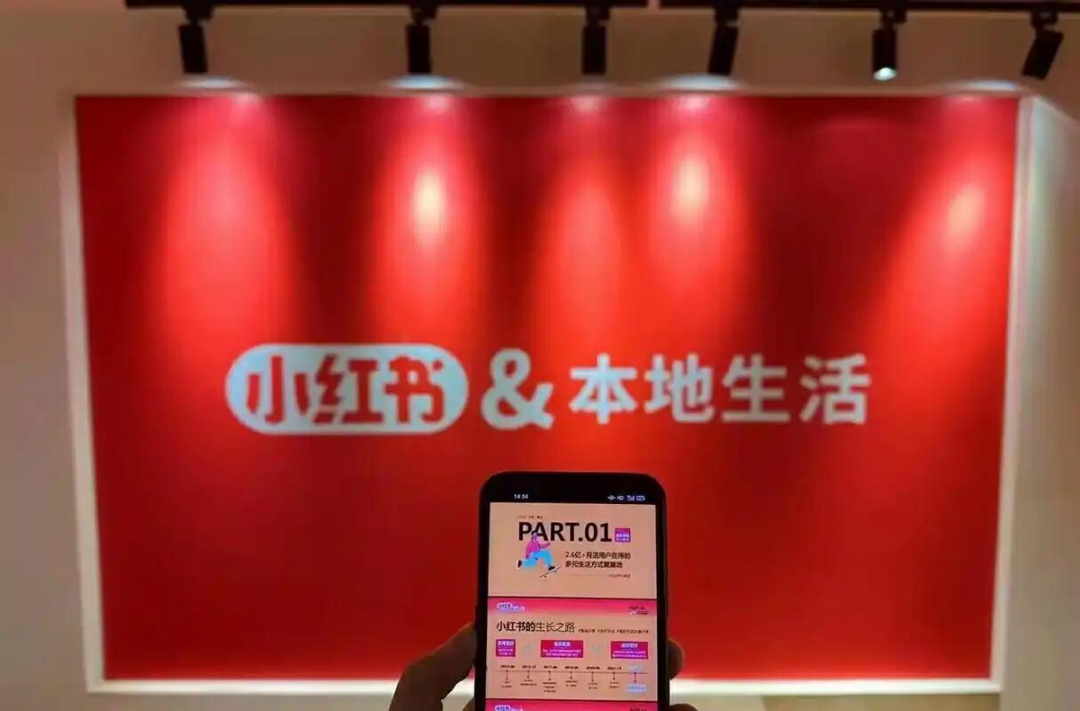
At the same time, Xiaohongshu also released the "Xiaohongshu Local Catering Industry General Plan" to accelerate its entry into the local catering market. However, it is evident from the early "Thousand Group War" and the various "chaotic battles" in the local lifestyle services sector in recent years that local lifestyle services are not just a lucrative market but also a tough nut to crack, with only a handful of players capable of tackling it.
Xiaohongshu has always tried to complete the consumption cycle from "seeding" to "harvesting," which is not a new concept. However, facts have shown that Xiaohongshu, which has always positioned itself as a lifestyle e-commerce platform, still hasn't figured out its e-commerce path until now.
The most obvious manifestation is that merchants stationed on Xiaohongshu Mall often complain online that although the platform has significant traffic, the traffic to the mall itself is scarce. This embarrassment will also be present in Xiaohongshu and Douyin's local lifestyle services, where the consumption cycle has not yet been completed.
Final Thoughts
In summary, the worry for traditional players in the local lifestyle services sector is the increasing number of competitors, leading to a bottleneck in performance scale growth. The challenge for emerging players is that although they hold the chip of "traffic," they stumble and fall due to the difficulty in forming a business cycle. This has also led to the "resurrection" of the previously "rejected" front-end warehouse model, while Douyin and Xiaohongshu continue to circle around.
Looking at the overall landscape of local lifestyle services, it seems that in the short term, major internet giants will continue their unorderly development of territorial expansion and unruly growth, leveraging their respective advantages. In the future, the trillion-level local lifestyle services market will eventually reach a new equilibrium. However, in this brutal market competition, it remains uncertain who will emerge victorious and with the brightest smile.
Editor: Nick
Disclaimer: This article is written based on publicly available information or information provided by interviewees, but Tech 4 Less and the article's author do not guarantee the completeness or accuracy of the information or related materials mentioned in this article. Under no circumstances does the information or opinions expressed herein constitute investment advice to anyone.



